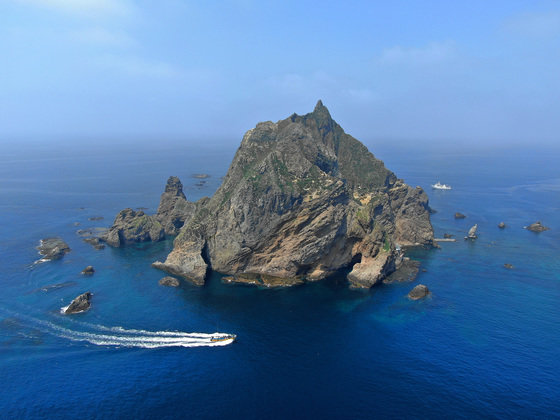Although Korea and Japan reaffirmed their will to ‘build future-oriented relations’ through their summit meeting on the 16th, it seems that they will still continue in parallel with the direction of ‘future generation education’.
It is expected that the Japanese government will soon announce the results of the elementary school social studies textbook test, which uses expressions lacking in ‘coercion’ in relation to forced mobilization during the Japanese colonial period and contains Japan’s unreasonable claim to territorial sovereignty over Dokdo.
Japan’s Ministry of Education, Culture, Sports, Science and Technology plans to hold a ‘2022 academic book qualification review committee general meeting’ on the afternoon of the 28th to receive a report on the implementation status of textbook approval and review results, and then disclose the contents.
According to a source familiar with Korea-Japan relations on the 27th, among the textbook inspection results to be released by the Japanese Ministry of Education, in the case of social studies textbooks for the 4th to 6th grades of elementary school, as in the announcement of the high school history textbook inspection results in March last year, expressions such as “forced” are expressed in descriptions related to forced labor. It is very likely that this will fall out.
In relation to Dokdo, the expression ‘Takeshima (the name of Dokdo claimed by Japan) is Japan’s inherent territory’ is expected to be specified.
Despite the burden of deteriorating domestic public opinion, the South Korean government decided on the 6th of this month that “the deteriorating relationship between Korea and Japan should not be left unattended”, and on the 6th of this month, the Japanese government made a legal decision regarding the issue of compensation for damages from forced labor during the Japanese occupation, which is the biggest conflict between the two countries. After presenting a solution that would ease the burden, Japan has requested a “sincere response”.
In particular, President Yoon Seok-yeol visited Japan on the 16th and 17th and held a summit meeting with Prime Minister Fumio Kishida, agreeing on the restoration of shuttle diplomacy between the leaders and the reopening of a consultative body between the government authorities of the two countries in order to ‘build future-oriented Korea-Japan relations’. It also declared the complete normalization of the Korea-Japan Security of Military Information Agreement (GSOMIA, GSOMIA), which had been in a state of “conditional termination postponed.”
However, despite the Korean government’s efforts to improve relations, the general assessment of related experts is that the Japanese side “is not taking sufficient responsive measures in relation to the resolution of compensation for victims of forced labor.”
 A panoramic view of Dokdo and Seodo. /news1 ⓒ News1
A panoramic view of Dokdo and Seodo. /news1 ⓒ News1 In particular, after the meeting between President Yun and Prime Minister Kishida, reports distorting the facts, such as ‘Japan mentioned the Dokdo-related issue’, came out one after another, and Korean diplomatic authorities even protested against Japan.
In this situation, it is pointed out that if Japan denies the coercion of forced labor and announces the results of the textbook inspection containing content claiming sovereignty over Dokdo, “there is a high possibility that it will again become an obstacle to efforts to improve Korea-Japan relations.”
The South Korean government is expected to respond by inviting officials from the Japanese embassy in Korea to protest if the Japanese side again announces the results of the ‘distorted’ textbook review.
South Korea’s Ministry of Foreign Affairs takes the position that “Dokdo is our own territory, which is clear from the viewpoint of history, geography, and international law, and we cannot accept any unreasonable claim by Japan regarding our territorial sovereignty.”
Source: Donga
Mark Jones is a world traveler and journalist for News Rebeat. With a curious mind and a love of adventure, Mark brings a unique perspective to the latest global events and provides in-depth and thought-provoking coverage of the world at large.